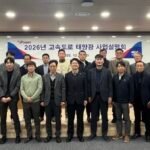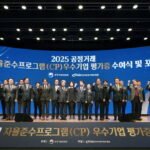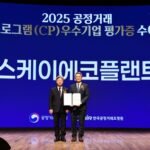South Korean brokerage firms are in a scurry to raise more than 1.7 trillion won ($1.24 billion) in private equity funds for real estate investment on the prospect of an acceleration in the restructuring of project finance loans, according to investment banking sources on Friday.
Financial authorities expect about 2 trillion won, or 5-10% of the estimated 23 trillion won ($17 billion) in project finance loans outstanding in the country, to be restructured this year.
This will likely fuel the bad loan market amid little signs of a meaningful recovery in the domestic property sector.
KB Securities Co. is preparing to raise 200 billion won ($150 million) in its first private equity fund dedicated to real estate.
It will pour 40 billion won into the fund as a subordinated debt provider. Its sister companies under KB Financial Group are considering committing to the fund as limited partners.
The fund will invest in bridge and project finance loan offered for the construction of residential and commercial buildings, offices and data centers at home and abroad.
Targeting a 12% internal rate of return per year, KB Securities will kick off the fundraising after getting a nod from its internal investment review committee.
KB Securities aim to expand its real estate fund size to 3 trillion won by 2030, 1.5 times its initial fundraising target.
NH Investment & Securities Co. launched a 200-billion-won private equity fund in partnership with ARA Korea, an asset management firm, earlier this year. It targets value-add and opportunistic real estate assets.
Meritz Securities Co., a leading South Korea’s real estate project financing provider, has embarked on the process of raising 300 billion won for real estate investment.
Mirae Asset Securities Co. and Hana Securities each are raising 300 billion won real estate funds.
Korea Investment & Securities Co. and Hyundai Motor Securities Co. are setting up a 200-billion-won real estate fund, respectively.
In total, domestic brokerage companies are expected to raise more than 1.7 trillion won ($1.24 billion) in real estate-dedicated private equity funds this year.
“All securities companies [in the country] are preparing to create private equity funds in search for new revenue sources,” said a brokerage company official in Seoul.
FUNDS EXPECTED TO BALOON
Industry observers said that real estate funds formed by domestic brokerage firms could grow to 20 trillion won down the road.
After playing a role as major project financing providers, they are now shifting to private equity funds investing in soured property loans. Those funds are expected to take over some of their distressed loans.
An apartment construction site
Their real estate funds will likely focus on collateralized senior loans and project finance loans prioritized for repayment.
Their aggressive push into the project finance loan market may pose a threat to real estate-focused alternative investment firms struggling with fundraising and poor performance amid high interest rates.
To ease the liquidity crunch in the project financing market, the government will form a 5-trillion-won loan fund with contributions from banks and brokerage firms.
Additionally, the Korea Asset Management Corp. (KAMCO), a state-run bad-loan company, allocated a total of 1.1 trillion won to domestic asset managers in 2023 to buy project finance loans.
By Byeong-Hwan Ryu
hwahwa@hankyung.com
Yeonhee Kim edited this article















